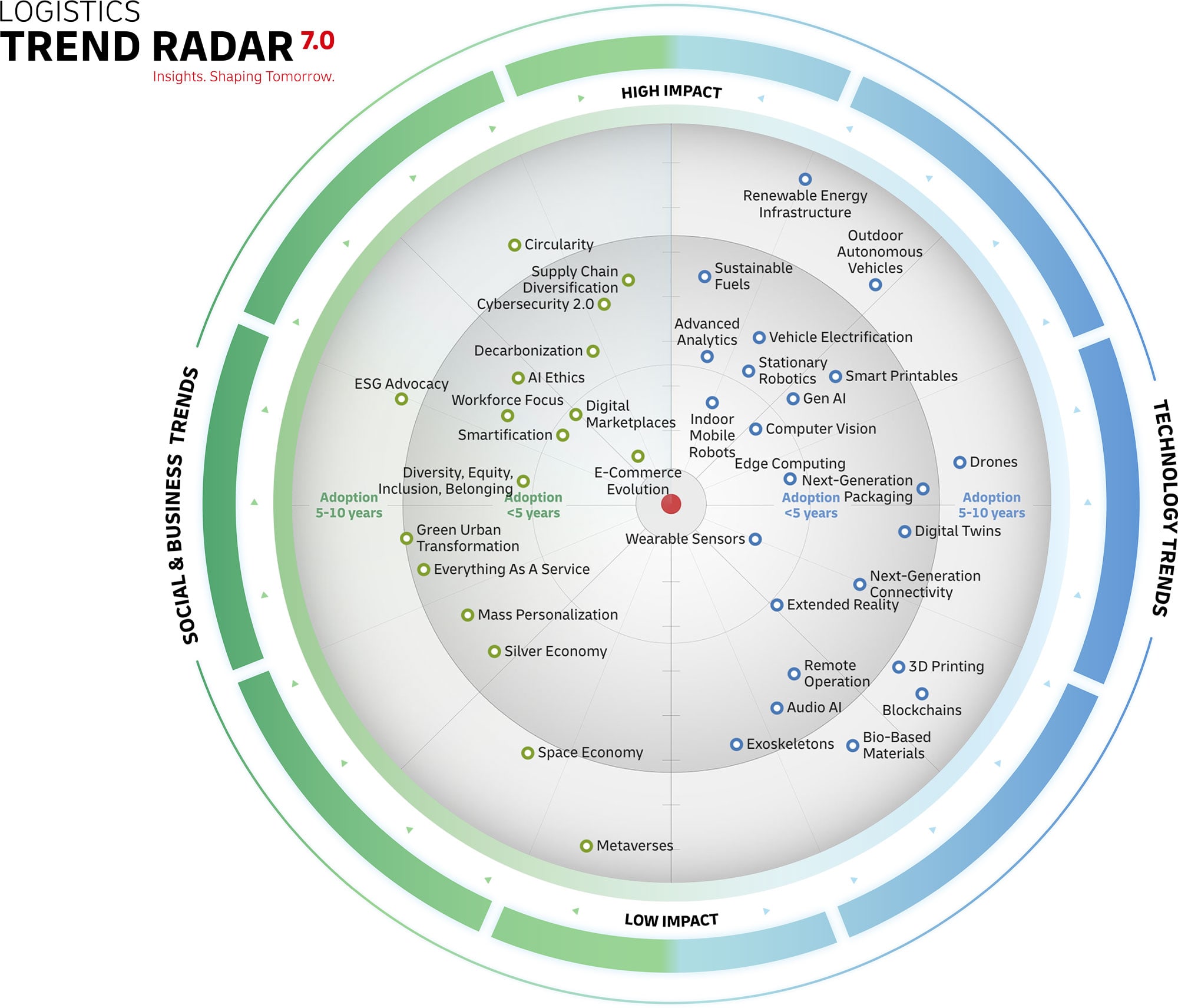The Audio AI trend refers to the branch of artificial intelligence (AI) focused on the analysis, synthesis, and understanding of audio signals, enabling machines to perceive, process, and interpret sound in a manner similar to human auditory systems. It encompasses techniques such as speech recognition, sound classification, and environmental noise detection to enhance human-computer interaction.
Audio AI, a subset of artificial intelligence, is a specialized field which deals with the pattern recognition, comprehension, and analysis of auditory data. This applies to audio data from humans (voice recognition), machines (manufacturing equipment and more), and the environment. Analyzing this information provides insights across several use cases relevant to logistics.
Recent progress in audio AI include breakthroughs in speech recognition accuracy, stylized music generation quality, and environmental sound classification and analysis, driven by deep learning algorithms and improved computational resources. This is due to advances in deep learning techniques, particularly in neural network architectures such as convolutional neural networks (CNNs) and recurrent neural networks (RNNs). Built on different architectures, these either use filters and pooling methods to feed information forward (CNNs) or feed results back into the network (RNNs).
The market size for sound recognition alone was valued at US$ 1.2 billion in 2022, and this industry is projected to grow from $1.38 billion in 2023 to $4.29 billion by 2032 with a compound annual growth rate (CAGR) of 15.2%.
Here at DHL, we do not foresee this trend having a very high impact on logistics, but we have identified several audio AI use cases likely to change the way desk-based workers engage in their daily professional lives. Also, certain operational workflows can be enhanced with audio AI – examples include predictive maintenance, the use of virtual assistants, and, for operations employees, language translation.
Other trends and technologies are likely to command the spotlight due to their disruptive impact on supply chains, changing the ways goods flow through a warehouse. However audio AI can act as a supporting trend for many technologies, ensuring they operate optimally.














